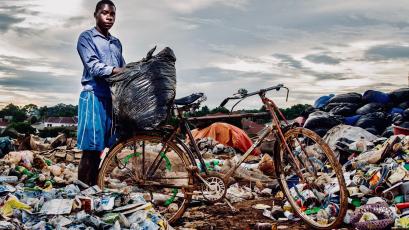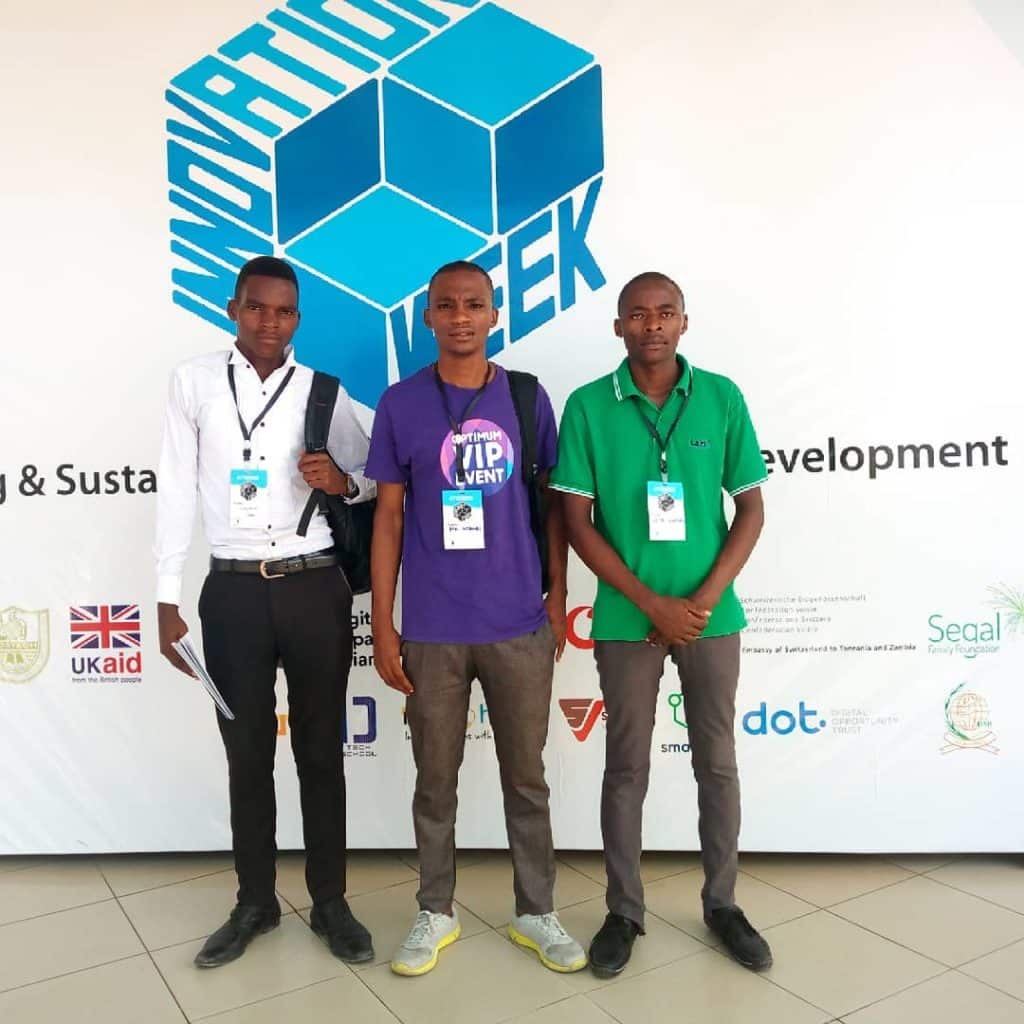
Entrepreneurship, Solution to Global problems.
Have you ever witnessed a plastic block? What’s about liquefied petroleum gas produced from plastic materials? It’s not an art, it’s a scientific innovation and discoveries which met with the art of creativity.
Tanzania’s environmental conservation and sustainable development, witnessed the ban on the use of plastic bags from Prime Minister Kassim Majaliwa, shortly after the Minister of Environmental Affairs January Makamba made his recommendations to the parliament for his good intentions to preserve the environment for the betterment of the living organisms.
After a long movement since 2003, June 1 this year Tanzania set a history of the ban on the use of plastic bags, where laws and regulations were developed and started its implementation so that to everyone who violates such procedures should be taken to the appropriate action.
Zanzibar went ahead of these movements, which in 2011 officially banned the use of the plastic pockets with neighbouring Rwanda and Kenya followed closely in 2008 and 2017 respectively.
Each problem has its own solution which has benefits for the community. The ancient scholar was quoted saying, “every problem has a solution. You just have to be creative enough to find it.”
The effects caused by plastic products attract the young people who are studying their first Bachelor Degree at the Kampala International University to save the community from epidemic and the disappearance of marine biodiversity by recycling plastic waste for industrial and domestic utilization.
Chief Executive Officer Abdallah Jumanne Nyambi who is studying a Bachelor Degree of Computer Science, Secretary-General Erick Eliakim, as well as the co-founders Makongo John and Isaya Mathayo who are studying the Bachelor of Arts in Education at the university.

The youths have created a group that is involved in the conservation of the environment which is well known as PREYOTZ (Plastic Recycling and Youth Empowerment Organization in Tanzania).
by using problems caused by the use of plastic products, PREYOTZ has gone far beyond efforts to support government efforts in environment conservation, by producing building bricks and gases for domestic and industrial utilization made up of plastic bags and equipment which don’t decompose as fast as bottles, dishes, pipes and others which look similar.
Describing the scientific innovations and discoveries, Abdallah Jumanne Nyambi, a third-year student of Computer Science and CEO of the group, says that they are using high density and low-density bottles, plastic bags, sands and used engine oil to make interlocking and paving blocks but also they consider producing liquefied gas in the process.
“As a result of the environmental impacts that arise every year, we have created this project to recycle non-sterile plastic waste to make natural bricks and gas to support the government’s efforts in environmental conservation.” He says.
Further clarification, Nyambi says that despite the poor tools and machines they had, they have tried and succeeded in producing liquefied petroleum gas available in plastic products, but due to lack of capital to afford the capacity of the power plants, their intentions fail to achieve as they wish.
The United Nations International Environment Organization (UNEP) reports say that about 100,000 to 150,000 marine organisms lose their life for one year due to plastic bags.
Other figures say that more than one million sea birds lost their lives due to plastic bags for one year.
UNEP did not stop there further to make more frightening data where they say, by 2050 there will be more plastic bags in the sea, lakes and rivers than fishes and other aquatic organisms.
This means that by 2050, a fisherman will get two fishes and 400 plastic bags if relevant intentions of plastic bags usage could not be launched.
In other words, Tanzania’s Indian Ocean, Lake Victoria, Tanganyika and Nyasa could provide only eight fish and 1600 plastic bags from these areas as a barrier to the use of the bags would not be available until that time.
Other UNEP figures say that 80 percent of plastic bags are dumped into the street while only one percent of the bags return to the factory for other uses.UNEP also tells us that the whole world uses about 500 billion to 1 trillion plastic bags every year.
The serious side effects of plastic bags have led the government of the United Republic of Tanzania to ban the use of these bags while the PREYOTZ environmental conservation group has now been five years since it started the plastic waste collection process and making alternative uses. “Our group started officially in 2014 when we were at Kibiti Secondary School, it received a formal registration on May 1 this year, I got the idea and developed it from my mother who was making batik and sewing clothes.” He urges CEO Nyambi.
“I developed myself after seeing the flowers made of plastic. Through application of Chemistry subject that I was very good at while I was in school, I tried to undergo scientific research and experimentation to identify what makes up the plastic, how to separate it and bring it back to its normal state.”
“In doing so, I realized that in plastic we can create something that has a distinctive appearance, but also to get petroleum gas from the smoke produced during the process.” He explained Nyambi.
We use 44 plastic bottles of one litre which weighs about one kilogram, the bottles we scrape and dissolve can give us seven hard paving blocks while in the side of large bricks we may get one and a half interlocking blocks.”
“So we can create employment to Tanzanians who will work for us as well as preserving the environment at the same time.” He emphasized the environmentalist. In September 2018, the International Broadcasting Corporation (BBC) reported on the possible effects of plastic containers when used to store hot food, the report alerted the BPA and DEHA chemicals that evaporate from the plastic food containers which may affect human health. Change of tissue organs, destruction of genetics, damage to pregnancy (miscarriage), complications during pregnancy and hormonal changes.
While in children these chemicals are mentioned to destroy their immune system that should increase the condition that causes hormones to change.
Based on these effects on human health and other living organisms, PREYOTZ encourages the use of alternative products to plastic products that they use to make products that people will use as paving and interlocking blocks while their health will remain safe.
According to the National Conservation and Environmental Management Council (NEMC), plastic products spend 500 to 1000 years to decompose so if there is no alternative use of such products then it is more likely that these hard-packed wastes will spread to every corner of the country. According to data published in our world in data, by 2015, 55 percent of the world’s plastics were thrown down to 25 percent were burned and only 20 percent were recycled and reused for other users in the community. These figures also define and explain that, from 1950 to 2015, only nine percent of plastic products are returned and re-used to the community. So it is similar to say that 91% of plastic waste was left to spread in the environment especially on water sources such as oceans, rivers, lakes and dams where Tanzania is rich in such sources and its economy depends on the availability of these water bodies to operate various activities, like agriculture, fishing and transportation.



Digital Payment as a Way to Increase the Freedom to Make Payments